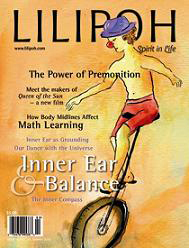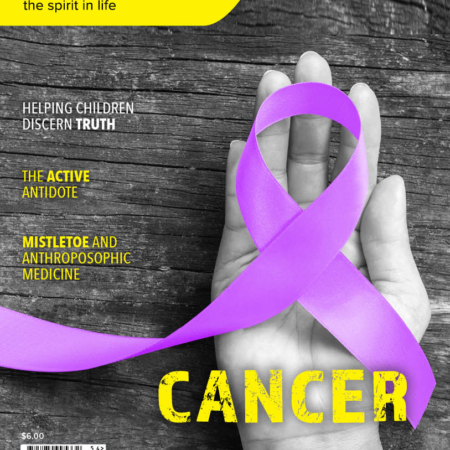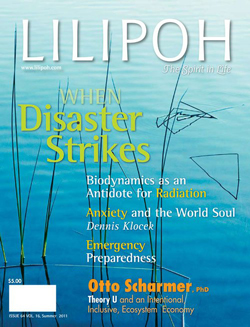Special Issue: Celebrating 50 Years of Camphill in North America
$5.00
Issue: Lilipoh Special Issue: Social Renewal; Celebrating 50 Years of Camphill in North America
A Note from Special Edition co-editors Wanda Root & Jaque Bieringer
Dear Readers,
The social experiment of Camphill began in Scotland in 1939 when Karl König put his spiritual ideals into practice to start the first Camphill community. Just at the time when National Socialism was ravaging Middle Europe, crushing human values and social order, König founded a therapeutic community based on anthroposophy and his love for children in need of special care. Camphill was inspired by the belief that conscious openness to the unique and wondrously diverse manifestations of our humanness and spirituality would create a community that enriched all members. As the work developed and the children grew, land-based villages and youth guidance and training centers arose, followed by urban centers with workshops, art studios and cafés. Now, 70 years later, the Camphill movement has grown to more than 100 diverse communities in 22 countries around the globe.
As we celebrate 50 years of Camphill in North America, we are pleased to share this special LILIPOH issue with you, highlighting some of the practices and ideals that have inspired our work towards social renewal. Today, the North American region consists of 10 independent communities and several related initiatives that are home to more than 800 people. Their impact extends beyond the communities themselves to families, friends, neighbors, local tradesmen and professionals. The communities are stewards of more than 2,500 acres of land, applying organic and biodynamic methods tobring harmony and healing to the earth.
In most Camphill communities life and work is shared with people in need of special care, particularly those with developmental disabilities. The extraordinarily pure, tolerant human goodness that so many of these individuals embody allows our communities to flourish. It is not our aim to live for people with special needs; we want to live with them, appreciating that they have a contribution to make to our lives and social future.
Camphill is an impulse for social renewal. In a society that is becoming more and more self-absorbed and individualized, we try to meet one another with openness and interest. In this fragmented and over-stimulating world, we try to do our tasks with intention and peacefulness. In an increasingly materialistic culture, we strive toward balance that comes with spiritual awareness. In the face of burgeoning regulatory requirements, safeguards and controls, a language of service providers and consumers, we continue to practice a way of life that’s both intentionally personal and therapeutic. We hope to foster inner equanimity in the face of outer demands and pressures. We experience the dynamic tension between the needs of the individual and the needs of the community and, therefore, fashion settings that are supportive to our inner and outer tasks. Meaningful work, social engagement and a sense of accomplishment all contribute to the vitality of our everyday life.
Camphill wants to celebrate and support the unfolding of our humanness, the uniquely individual path of human development. At different moments, any of us may require more support than others. Out of this arises a symbiotic opportunity that one may be open to the help of another, while the other has the chance to grow to meet this need. Our dignity is increased immeasurably by the ability to give as well as receive, by this dimension of mutuality. Social life achieves new depth and reality when we acknowledge that we are all in need of healing, that we all have shortcomings and vulnerabilities and that we each carry unique gifts and strengths. When we strive to live not only with each other, but also with caring interest for each other, we realize unexpected capacities for human tolerance and develop both our confidence and humility.
Camphill communities recognize that a rich home life is key for social well-being. This requires active tending to develop an atmosphere that nourishes the body, soul and spirit and engenders a sense of belonging. We appreciate that what happens in the home is the foundation for everything that one does outside and, likewise, that what one encounters outside the home will deeply affect one’s well-being within.
Although in some ways our communities aim for self sufficiency, it has never been the intention of Camphill to be insular. Rather, it is our hope that what we create and develop may be of broader benefit to our friends and neighbors. This will allow us to participate in wider cultural, social, educational and economic issues.
Karl König was a visionary who considered Camphill to be a dynamically evolving social organism. He was convinced that other tasks “lie hidden in the lap of the future” and believed that the healing impulse of Camphill would move beyond the field of developmental disabilities into many different areas of human, social and environmental need.
In Camphill we strive to bring mindfulness and beauty into all that we do, whether it is our work, relationships, physical spaces or cultural celebrations. It is our hope that something of this beauty shines through what you are about to read. We also hope that this issue serves to build bridges towards new friendships and collaborations for future tasks. Although there is much to be celebrated, there is still so much more to be done. May the next 50 years see us continue to evolve our work!
Jacque Bieringer has been connected to Camphill since 1999 in various ways: as an employee, a friend living outside the community and a co-worker. She and her partner, Phil, are Waldorf teachers and the parents of three-year-old twins, Anya and Sophia. It is Jacque’s hope to make the world a more beautiful place one deed, artistic offering and conversation at a time.
Wanda Root has lived and worked in Camphill communities in Scotland and the United States since the early 1970s, and been involved with a myriad of deep and challenging responsibilities and experiences throughout those years. She took special delight in her years of homemaking and the enriching human relationships developed through life-sharing. She loves literature and poetry, travel and pilgrimage and is especially interested in exploring and cultivating the social art. She has recently co-edited Seeds for Social Renewal, the Camphill Village Conferences. Wanda has made Camphill Village Copake her home for the past 30 years.







